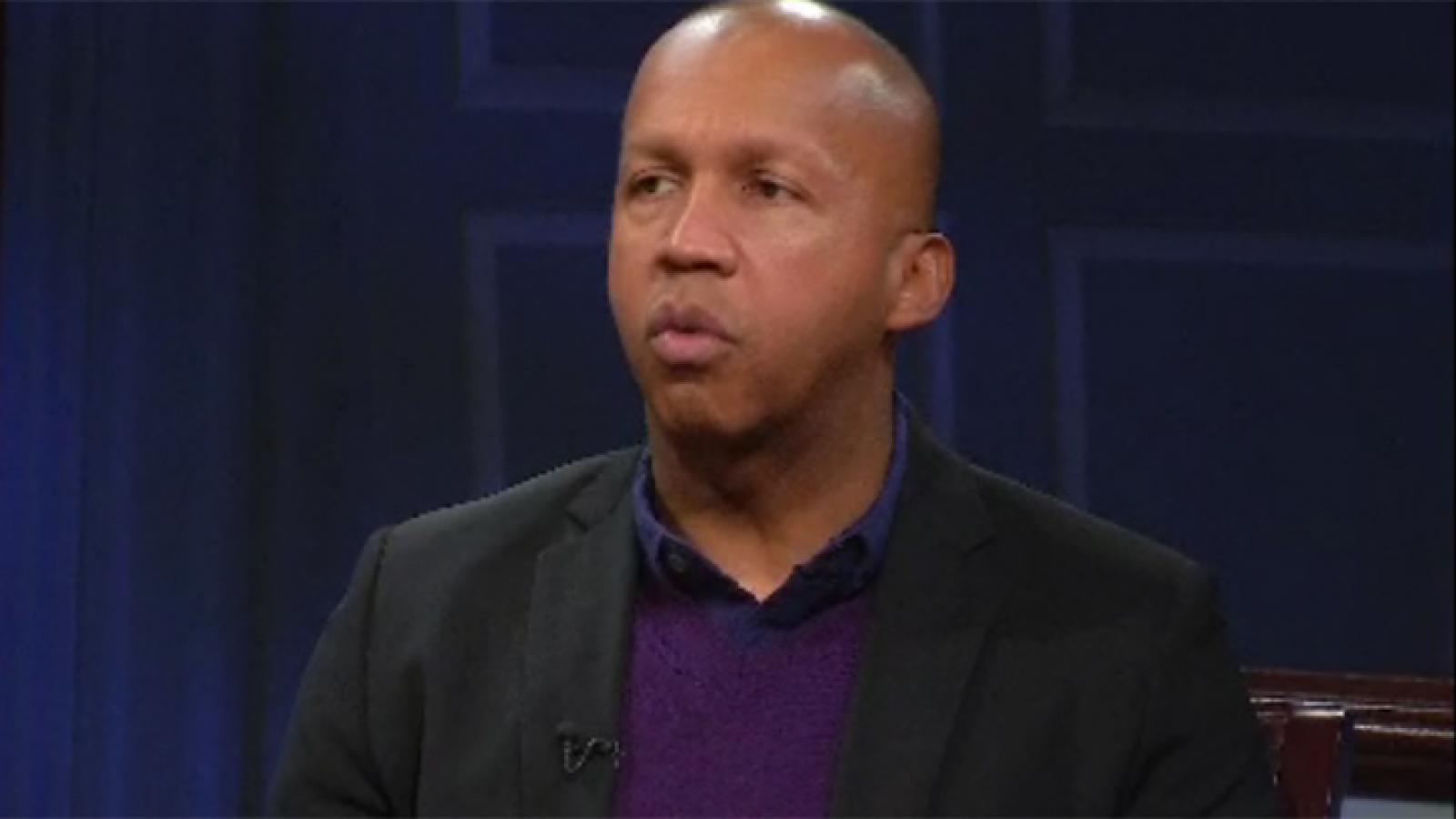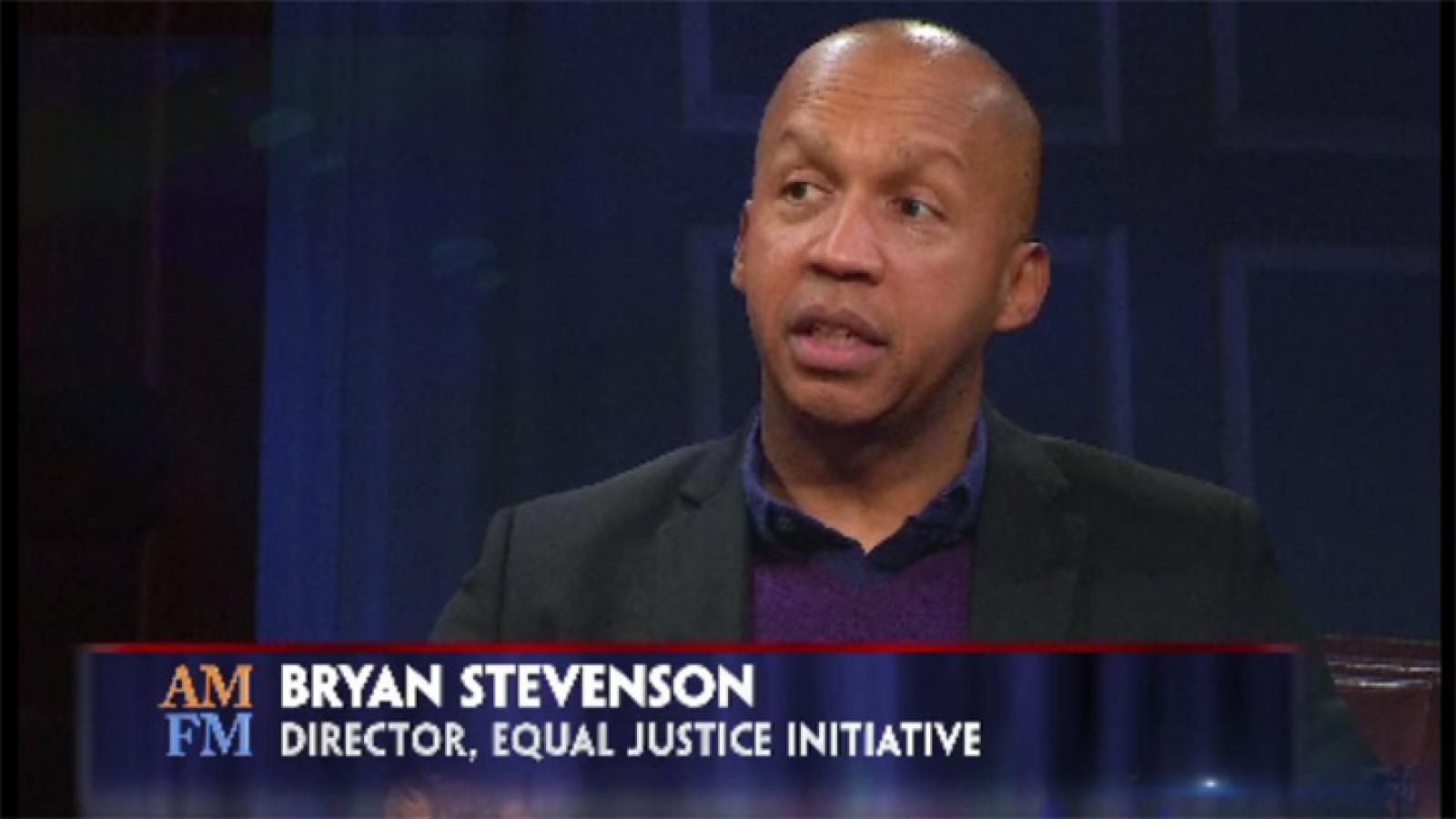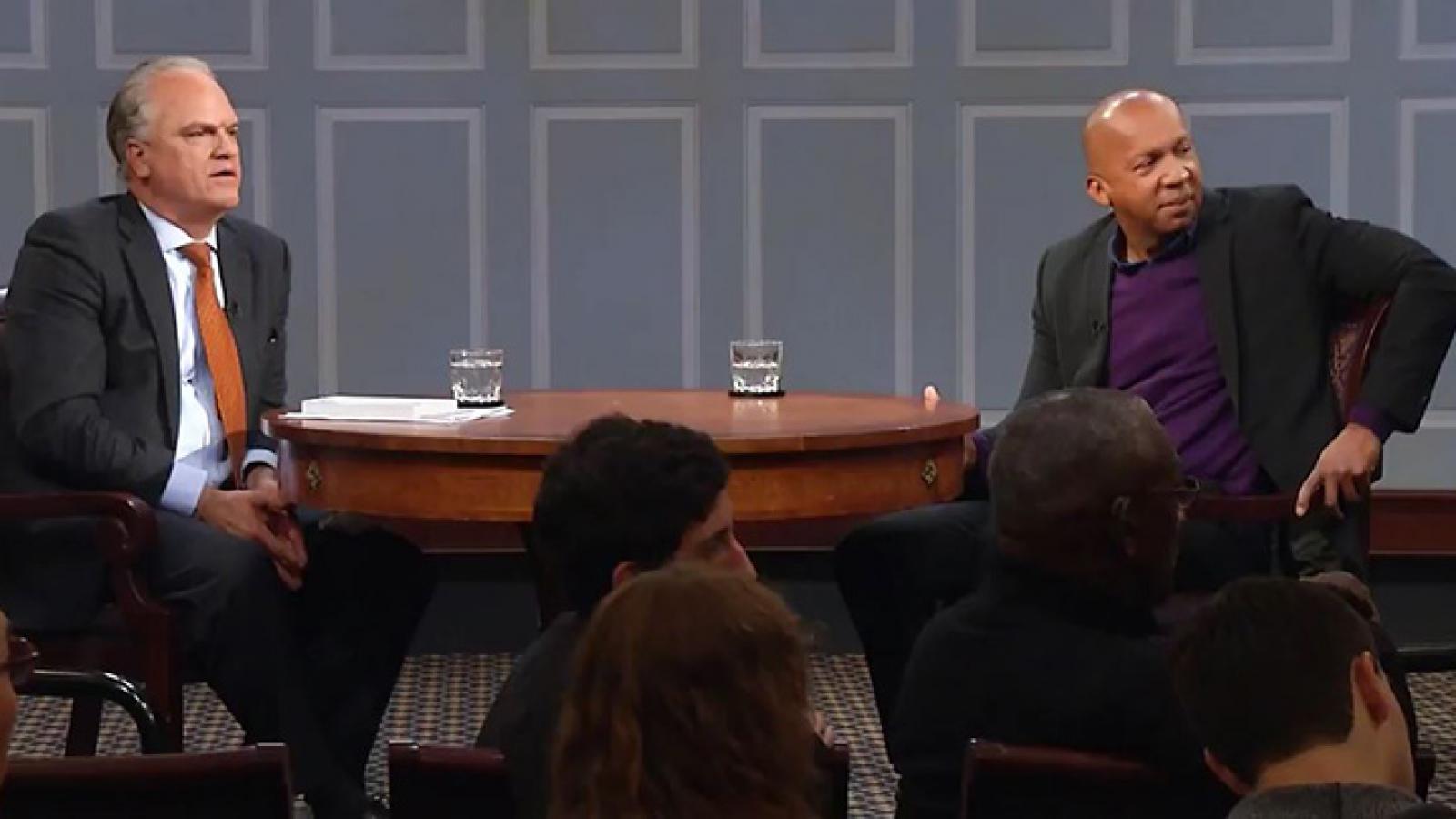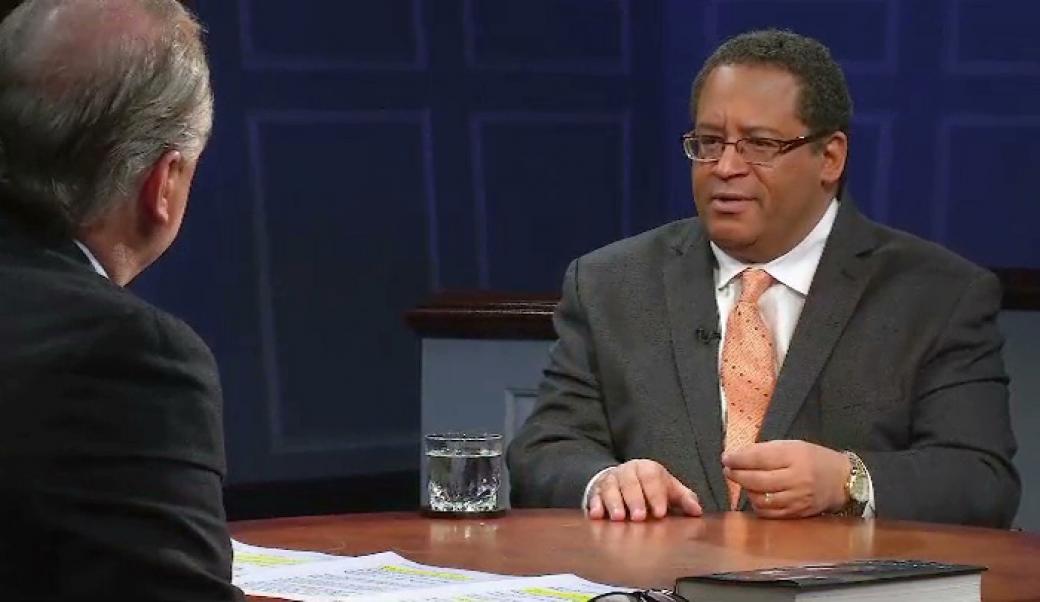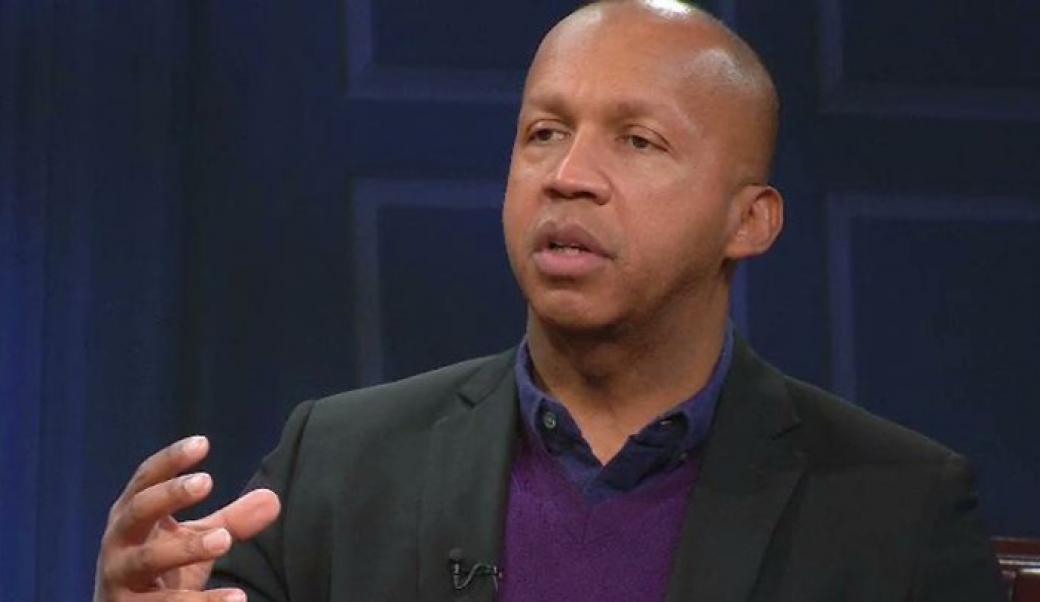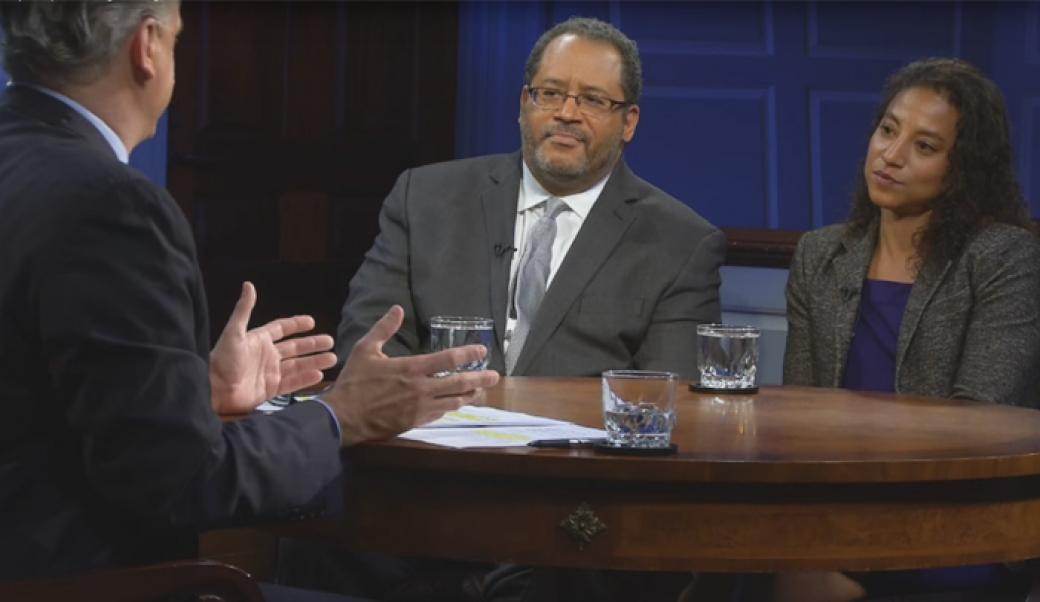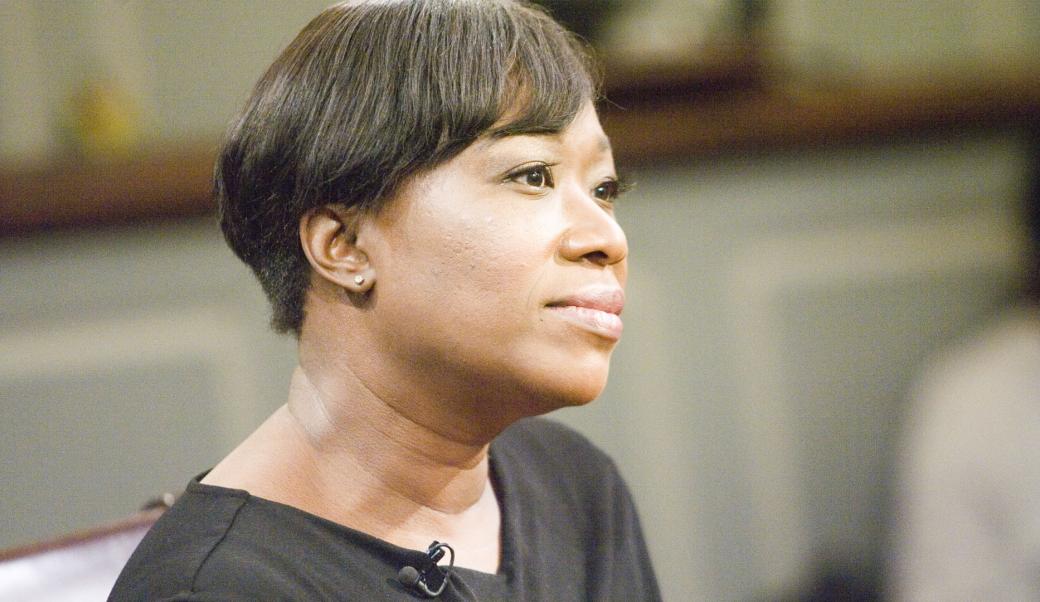About this episode
July 29, 2016
Bryan Stevenson
Civil rights lawyer Bryan Stevenson returns to discuss solutions for the crisis in criminal justice and his book, "Just Mercy: A Story of Justice and Redemption."
Race and Racism
Race and policing in America
Transcript
0:51 Douglas Blackmon: Welcome back to American Forum. Americans have been embroiled in a passionate national debate over the past two years driven by what appeared to be a surge of questionable killings of African American citizens by police and a growing awareness that our country incarcerates more people than any society in the world. Approximately seven million citizens are in prison or on oversight of parole and probation systems. There is a growing sense that our system may be designed to be unfair to minority groups and our confidence in police officers and prosecutors whose good faith we counted on to insure that only true criminals were arrested has been rocked by a series of dubious shootings of black citizens and revelations of law enforcement misconduct. In this episode we return to our ongoing series “What Now? New Dialogues on Race in America.” Joining us again is Bryan Stevenson, a lawyer, founder of the Equal Justice Initiative and the architect of a landmark Supreme Court ruling that mandatory life sentences for juveniles are unconstitutional and author of the best-selling book Just Mercy: A Story of Justice and Redemption. Thanks for being here.
FACTOID: Total U.S. Population in prison and on parole or probation:” 6.9 million
Bryan Stevenson: Delighted to be with you.
2:00 Blackmon: So, I just cited a number in the introduction seven million Americans who are under the umbrella of the criminal justice system in some fashion, uh more than any country in the world, maybe more than uh, at any point- any society in human history. Uh, you have waged uh, uh a battle all through your adult life really, as an attorney, to try to change those things and to try to reform the criminal justice system. And in particular the ways that it appears to be implicitly or explicitly unfair to minorities and African Americans. But I want to ask you about uh, uh, what appears to me the phenomenon as the system has in fact become more fair, which it has, in you know, it treats people more equally, regardless of race and other things than it once did. But one of the effects of that is that you now have more people receiving the treatment of a draconian system. Are we able to make this a system that is just for everyone, as opposed to one that is simply equal for everyone?
Stevenson: Yeah I think that uh, one of the problems is that the theory was, if we took away discretion, we would get to more equality, more fairness. And the truth is we haven’t really done that. So we, I think most people make that contention by pointing to, say, the evolution of mandatory sentencing. Uh, but-but the truth of it is that we mandate certain sentences, judges no longer have discretion, but that didn’t eliminate discretion, it just shifted the discretion from judges to prosecutors.
FACTOID: Reagan, Congress began federal drug sentencing escalation in 1986
If you and I go down the street, we walk into the same store, and you take a pack of chewing gum, and I take a pack of chewing gum, and we both walk out, and we both get arrested, the prosecutor can say “oh Professor Blackmon, I’m going to give you, I’m just going to charge you a misdemeanor. You’re a local professor, I respect you.” They can also say to me ‘no you committed a serious crime, it’s going to be robbery, uh, “cause you had a stick in your pocket and we’re going to ma-.” And I could be looking at a mandatory sentence of 15 years in prison while you go home. And that’s a discretionary choice made by that prosecutor, so I don’t actually think we’ve made things all that fairer. But I don’t actually think we’ve seen that increase in fairness. If anything, I think because it’s hidden, it’s less reviewable. Uh, we’ve made it easier for the system to operate in ways that are fundamentally unfair.
4:25 Blackmon: Part of what you’re describing is also this phenomenon of how very few people who are charged with a crime actually receive a trial, uh, and that instead the judges are never really involved except as a rubber stamp at the end of a, a plea negotiation process.
Stevenson: That’s exactly right, and, and but even if they were involved in trials, and if the person was convicted they’d be uh, forced to impose really extreme sentences. And we-we-we moved to this system because we didn’t trust uh, people uh, to be as political about the administration of criminal justice as the politicians that were leading this charge uh, to mass incarceration. And I think they were leading this charge to mass incarceration because there was uh, this underlying narrative of racial difference that was looking for a new uh, place to vent itself.
FACTOID African Americans incarceration rate is five times higher than for whites
I really think that. You have these laws that on the face of them never use the word black or white but are almost completely enforced in racialized ways. We had these disparities in sentencing between crack cocaine and powder cocaine that could not be explained in any other way, uh, other than the kind of racial context from which they were administered. And the indifference to that I think is the real challenge for us, because I don’t think we’ve responded to that problem with the kind of urgency that we should have, and now we’re seeing the manifestation of it with police officers shooting unarmed black boys and-and men on the streets, and people being stopped and frisked, uh on the streets in New York City just like they are in places just in Mississippi and Alabama.
FACTOID: Police killed 990 people in 2015, half were white, 26 percent were black
5:53 Blackmon: Is it your sense that-that there is an increase in the number of those sorts of incidents that is occurring, or is it that because there is now a camera in everybody’s hands that we are seeing it, and that essentially what is happening now has been happening at the same rate for a very long time? It’s just that in the past we didn’t have the glaring evidence of exactly what it was.
Stevenson: Yeah I think it’s the latter. I think these problems have always existed, uh, police violence directed at people of color has just, has been going on for decades and most social disturbances over the last 50 years in communities of color have been triggered by police violence. Because when you’re black in this country, you are presumed dangerous and guilty. And every person of color, one way or another learns that. And it doesn’t matter how much education you get, I have to tell my students I don’t care how many degrees you get you’re still going to be facing the presumption of dangerousness and guilt when you walk out on those streets. And that’s burdensome, that’s exhausting. And you get tired of it. And then when you see it manifesting itself in some lethal way, this time on camera, it enrages you because you’ve been dealing with this burden your whole life. And so no, I don’t think there’s anything new about it. I think if there’s anything new, it’s our ability to prove it, to document it. People have said that what that, when that uh, African American man was shot in North Charleston by a police officer, in the back while he’s running away,
FACTOID: North Charleston, S.C. cop was indicted for murder in June, 2015
people have said it’s not possible that a police officer there would do that, but for the camera. And-and I think that’s the real challenge, and what we’re not talking about enough in my opinion is why it is so overwhelming for people of color, why this ought to be so overwhelming for everyone to be living in a society where you’re presumed dangerous and guilty, where you have to bear this burden. I was telling some young kids, I said you know, when I grew up my grandfather taught me, he’d say these things that are painful to hear, but he would say “don’t ever forget you’re black.” When people forget they’re black, they get hurt. I moved to Montgomery in the 80s, and I was looking for a place to live, and I just couldn’t find housing because the bulletin board was still using racially restricted language for housing, uh two-bedroom apartment available, white man and woman, that kind of thing. And I call the realtor and he say, oh I got six places, just go on over there, the doors are unlocked, just walk inside. And I got to the neighborhood, and it was a, not an entirely black neighborhood and I was about to walk inside, and was almost, and I heard my grandfather say “don’t forget you’re black.” And I didn’t feel comfortable going into that neighborhood, into those homes. I was a practicing lawyer. Uh, and then the next day I heard about someone being pulled out of a house that they were visiting just to see if it was a place they wanted to rent and was beaten by the police, and didn’t have the chance to give voice to him just being a potential renter. We’re just still dealing with the symptoms of our history of-of-of white supremacy, of narratives of racial difference when we talk about police violence, and we’ve gotta commit to dealing with the implicit bias and the explicit bias that motivates that, that aggression and that violence. That’s the only way we can make progress.
8:52 Blackmon: The case you write the most about in your book Just Mercy is the, the story of a man named Walter McMillian um, uh in Monroeville, Alabama, the famous place, uh, where the fictitious Atticus Finch um, uh, uh came from. But, uh, tell us the story of that case.
FACTOID: McMillian was released from prison in 1993, died ten years later
Stevenson: Yeah well, uh, Walter McMillian was an African-American man living in Monroeville, um, and there was a terrible crime in the mid-80s, late 80s of a young white woman murdered in a downtown cleaner.
FACTOID: McMillan was convicted of killing 18 year old store clerk in 1986
And the police couldn’t solve the crime, and the whole community was outraged uh, and upset, gun sales had tripled, they were talking about impeaching the sheriff or the prosecutor if they couldn’t make an arrest. And so we believe they decided to arrest Mr. McMillian not because they really believed he committed the crime, but because he was having an interracial affair with a young white woman. And they arrested him, uh, they actually put him on death row (Blackmon: And, uh, what year was this again?). This was 1987 when he was arrested. He was placed on death row before trial—it’s the only case I’ve ever worked on where the client spent 15 months on death row pre-trial—so the papers would say “death row defendant Walter McMillian will be arraigned tomorrow, death row def…” And, uh, they, uh were able to convict him and sentence him to death. The amazing thing was that at the time of the crime, he was actually raising money for his sister’s church. And about 30 people of color with him, 11 miles from the crime scene. So they knew he was innocent. And when he was arrested they went to the sheriff and said “you’ve got the wrong man.” They were ignored. The trial lasted a day and a half. He was convicted of capital murder. He was actually sentenced to life without parole by the jury, and the trial judge, whose name was Robert E. Lee Key, overrode the jury’s verdict and imposed the death penalty, and he spent the next six years on death row. When I started working on the case, um, they had convicted him based on the testimony of one man. And, uh, I found out that this man had been coerced to testify falsely—he just admitted to me that it was all a lie. And then he told me he had been recorded trying to persuade them he shouldn’t do this, and so we started looking and found tapes uh, where the police had interrogated this man while they were coercing him to testify falsely, and for some bizarre reason they tape recorded those sessions. So the witness was actually on the stand, tape saying quote: “you want me to frame an innocent man for murder, and I don’t feel right about that,” and the police officer was saying “well you’d better give us what we want, or we’re gonna put you on death row.” And he made lots of statements to lots of people that, uh he was lying, that this was all a frame up, they got some other people to testify falsely. And they then suppressed all that evidence—obviously they didn’t give it to the lawyers or give it to the jury—and so we found the evidence, went to court, and there’s a case called Brady v. Maryland which holds that the state is obligated to turn over anything that is favorable to the defendant, and when they fail to turn that over, uh, your conviction is unreliable and you are entitled to a new trial. And that was the basis upon which we won relief.
FACTOID: 1963 Brady order said police can’t hide evidence of innocence
11:46 Blackmon: And you have also, uh, been involved in the-the setting free of any number of other people, including a couple of cases out of the New Orleans area that you also write about, but where you had men, African American men, who were sentenced to life, or-uh, lived life as juveniles in the 1960s, the early 1960s, and are still at Angola.
Stevenson: There are lots and lots of other cases we’ve worked on where we’ve seen these same kinds of problems of reliability, in fact, in the death penalty context, uh-uh, I just got someone released last year who became the 152nd person proved innocent uh, since the return of the modern death penalty—we’re now up to 156. That means that for every nine people we have executed in the United States, we’ve been able to prove one person is innocent. It’s a shocking rate of error. We started working on cases involving children as sentenced to life imprisonment without parole, and we saw the same level, even higher levels, of unreliability, and I worked on a bunch of cases in Louisiana where these young kids, 16 and 17, would be rounded up in the early ’60s, uh, accused of some crime, convicted, uh, and then either sentenced to death by execution or given life imprisonment without parole. And for many of our clients who were at Angola in the ’70s and ’80s, uh, Angola is a plantation prison, and when people were sent there, they were required to go and pick cotton as part of their inmate labor.
FACTOID: Louisiana’s Angola Prison Farm was originally a slave plantation
And you had a bunch of people who said, “I’m not going to pick cotton, you’ve told me I’m going to die in prison, you’ve condemned me to death in prison, I’ve been abused my whole life, I’m not going to pick cotton.” And they’d get written up and they’d get disciplinary after disciplinary after disciplinary, and eventually in the 20th century they started moving away from some of these really egregious inmate labor practices, and so now, we’ve waned relief, and we’re going before the parole board, and our big challenge is they have all these disciplinaries because they refused to pick cotton in the 1970s and 80s. In order to win their freedom, we have to talk about why a plantation prison insisted on that kind of labor, they didn’t need the cotton for business, they weren’t actually marketing that stuff. It was to create the appearance of something that felt like control, right, and um, in many ways, the challenge of our history is made manifest in cases just like that. But we, we started working on those cases the way, because we were really concerned about the problem of unreliability throughout the system. I’m persuaded we have more innocent people in jails and prisons in America today than we’ve ever had in our history.
14:23 Blackmon: Well and that number, 1 in 9, the, the demonstrable error rate, I mean it’s a statistic, it’s now a statistically reliable error rate based on the number of exonerations that have occurred. And the, and, it doesn’t prove that, uh, that that approximately 10 percent of all, uh, convictions are in error, but it suggests the possibility
Stevenson: Absolutely
Blackmon: Of that, or something close to that,
Stevenson: That’s right
Blackmon: And if you apply that to 7 million people
Stevenson: Yes, that’s right.
14:47 Blackmon: That suggest 700 thousand people innocent people being convicted of these crimes.
Stevenson: Yes. And I think what is more problematic than the number is our silence in the face of that. Our indifference. I mean I don’t know why you’d still want to execute people when the risk of executing an innocent person is so high. You can’t justify it unless you don’t care about the victimization of these folks. Unless you are willing to tolerate the execution of innocent people, if it empowers you in some other way. And that’s the very definition of oppression, of abuse, of inequality, of injustice, there’s no way to reconcile that mindset with something you can call just. And that’s the tragedy, I think, of our indifference, our silence, our apathy, during this era of mass incarceration.
15:36 Blackmon: It’s also striking that, uh, we have become a society in which there are no second chances, seemingly. Uh and, and, the, the system, uh, I think I think you’re correct, certainly the data would say the system continues to be disproportionately unkind and draconian to African Americans and other minorities, but it is also generally draconian now that you have suburban white kids, uh, in high school, suddenly facing, uh, extraordinary punishments because they made a sequence of foolish mistakes, uh, and now are beginning to suffer in a way that in an earlier era they would not. That’s that’s, that’s opened the eyes of some people to seeing people in their world finally facing up against all this. But we once were a country, we were founded as a country, based on second chances. One of the most fundamental things. You know, I, uh, the state of Georgia was a place for convicts to go and get a second chance. And all throughout our history, uh, the notion that you could redeem yourself, uh and get a second chance, particularly if you were a white person, uh, was embedded into the American psyche, that’s something that the Founding Fathers had some awareness of. React to this theory of mine, and that is that, that is a predominant view in, at least among white people in America, the ruling class America, that’s a predominant view, that people should get a second chance all the way up until the 1960s, when it finally comes to pass, that African Americans have been able to first throw off the shackles of slavery then throw off the shackles of Jim Crow and everything associated with that, and are finally in a position to say “we ought to be able to live in a world with second chances as well.” And it’s from that point forward, that we’ve become a society that says “no, there’s no second chances for anybody anymore.”
FACTOID: Slavery officially abolished in 1863, but new forms existed for decades
Stevenson: Yeah I think that there is some force to that, I mean I think, uh, it’s a little more nuanced for me. I think what’s happened in the last 30 40 years. People have been unwilling to say “I believe in compassion; I believe in mercy.” What we’ve been saying is “I’m tough, I’m angry, uh I’m going to beat up on the people I don’t like, I’m going to punch that guy in the face.” That rhetoric, that rhetorical vision has emerged, which has left no, no room for second chances. We’ve reduced people to their worst act. And so if you, uh, tell a lie, you are just a liar. If you take something you are just a thief. If you kill someone you’re just a killer. And everybody has been complicit in that including the media, right? One of the things, we did a little study of the New York Times, Washington Post, etc. and they would use the world killer or rapist or thief, whenever they described someone who was accused of those crimes who was poor, who was black, who had no status. But when affluent people committed those same crimes, people who had identity, when a police officer commits that crime, they’re called a police officer accused of murder goes on trial. Uh fire fighter, and even their family members, firefighter’s son accused of rape, will go on trial. We give them an identity that is not the crime but for the poor and the, and people of color, we make them the crime. That’s how we introduce them. And these labels, I think, have created a world where second chance is seen as something that the weak do. Uh, compassion, that’s something for the weak. That’s for losers. And, I do think it’s completely incompatible with our history. Because the truth is that we all want second chances when we fall down. If we te- if we tell a lie, we don’t want to be judged a liar the rest of our lives. If we want to make a mist-mistake, we want mercy, we want compassion. If you want mercy, if you want compass-compassion, you have to show mercy, you have to show compassion. You can’t expect things that you don’t give. And we haven’t given much of that in American politics over the last 40 years. I think one of the reasons why it’s so hard to talk about, uh, racial justice, why it’s so hard to talk about our history of enslavement and lynching and segregation is that we’re so fearful of being punished for the history. Like a lot of people don’t want to talk about it. We’re trying to put up markers at, at slavery sights and lynching sights and all of that, and people don’t want us to do it because they are afraid that they might be punished, and I keep saying I have no interest in punishing, uh, people in America for the things we did, uh during the time of enslavement. But uh, I am unwilling to be silent about those things and allow this narrative to continue. And collectively we are not doing that in our criminal justice system, we’re saying “you fall down you stay down, you’re just bad, bad bad bad. Criminal criminal criminal.” And I think that that’s a very unhealthy thing not just for the people in that system, I think it’s a healthy thing for the society as a whole.
20:14 Blackmon: When I talk about bad things that have happened in our past, the great social crime of slavery, and what came after slavery in American life, I often will hear, particularly from a young person someone will say “you’re right that that was a terrible thing, but it doesn’t have anything to do with me, uh, you know uh I’m 21 years old today, my family moved to America from Poland in 1950, and so slavery was over, you know, no connection to me, has nothing to do with me. And what I tend to say to that person is that it’s not a question of whether we have inherited some guilt, but it’s a question of how do we respond to the knowledge of that, about our own families or about our country, and that we can be judged for.
Stevenson: Absolutely, and and I think that, you know, it’s our awareness and our knowledge. You don’t have to be personally implicated to be implicated, right? It doesn’t matter where you’re from, it doesn’t matter what your personal lineage is, if you’re living in a society where they start picking up people who are black or brown then putting them in camps and you do nothing, you are implicated. If we get to the point in this country where someone, uh, starts rounding up Mexicans and sending them back because they think they are rapists, if we get to the point in this country where we actually say “well we’re going to ban all the Muslims” I feel an obligation to say “today I am a Mexican, today I am a Muslim.” Because I cannot be indifferent to that kind of racism, that kind of victimization and be a whole healthy human being.
21:40 Blackmon: And not, and so, cause we don’t wanna be opaque, what you’re really saying is that if the things that Donald Trump, currently presidential
Stevenson: Absolutely.
Blackmon: candidate for the United States were come to pass.
Stevenson: Yes, that’s right. I, I I would have to stand with anyone who is victimized because of their religion, or their ethnicity. Being who I am, the great grandson of an enslaved person, uh of people who were lynched and terrorized, the child of people who were humiliated every day by Jim Crow and segregation, I have no choice. And it doesn’t matter that I’m not the person who said, “ban the Mexicans, ban the Muslims,” it doesn’t matter that I’m not ostensibly Muslim, I am disrupted by any policy in my country that would do that. In the same way that the Polish immigrant’s child has to make peace with this history that has created a narrative of racial difference. It still creates these shadows and these, these hor- and we’re not free in this country. I think we’re still haunted. We’re a post-genocidal society that has never owned up to the genocide that we were complicit in.
22:41 Blackmon: At the same time, uh, I find that people are at, largely at a loss as to, what to actually do. I mean an example of that is that, it’s a, it’s a little comical to say this, but, most prison systems don’t subscribe to, eh, don’t have HBO on their cable package, uh, but they do have all sorts of public affairs programming like this show. And so this program is seen by lots of inmates across the country. And I get letters from them because we talk about this issue all the time. I’ve got a big stack of them on my desk. And so I I still don’t have a policy. What do we do as citizens?
Stevenson: Well I think it, I think it is better to respond. We get, we get hundreds and hundreds of requests for legal help every week. And our, we have a group of people that we call our intake team. I mean they’ve been just bombarded, and the more, you know, we do stuff the more we get. And we’ve been wrestling with this too because it’s not taking a lot of time. I am persuaded that even when you say “no,” uh, it’s still important, or “I can’t help you” it’s still important because to be rendered invisible, to never be heard, to never even know you’ve been heard, that’s a kind of fate- my-the book that changed my life when I was a kid growing up and still struggling to overcome all the bigotry and racism that I encountered as a child was Ralph Ellison’s Invisible man. And why the book was so transformative to me was that he articulated this identity of someone, who can’t be seen who can’t be heard, and how painful and burdensome it was. And when I kind of read that I thought “you know what, I gotta figure out a way to be seen or heard.” It doesn’t matter to me if people agree, it doesn’t matter to me if people change, it does, but I can’t be turned around by that. But to not be heard, would be to actually, be, one of those invisible people. And that’s what’s powerful when organized communities of incarcerated people or young kids that are angry about police violence or students or any groups stands up and says “we need you to hear us.” What’s powerful about that is that it is the most, I think, venerable tradition in American history. The tradition of insisting that the democracy pay attention to inequality and oppression and injustice. Because the democracy that doesn’t pay attention to that becomes corrupt, and a corrupt democracy fails. And we are all tied to this vision of a better tomorrow we can’t get to until we deal with these problems and so you have to respond to people who say “please hear me.” And sometimes even if the response isn’t fulfilling and adequate, it’s still important.
Blackmon: Thank you very much.
Stevenson: You’re very welcome.
Blackmon: Bryan Stevenson. The book is Just Mercy: A Story of Justice and Redemption. We hope you’ll join this conversation with American Forum on the Miller Center Facebook page, or by following us on Twitter @douglasblackmon or @americanforumTV. To send us a comment, watch other episodes, download podcasts or read a transcript visit us at millercenter.org/americanforum. I’m Doug Blackmon. See you next week.

